8 Stocks That Are Fending Off Amazon
Amazon.com (AMZN) has left a trail of devastated companies in its wake, unable to compete with the e-commerce giant’s lower prices and seemingly infinite selection.

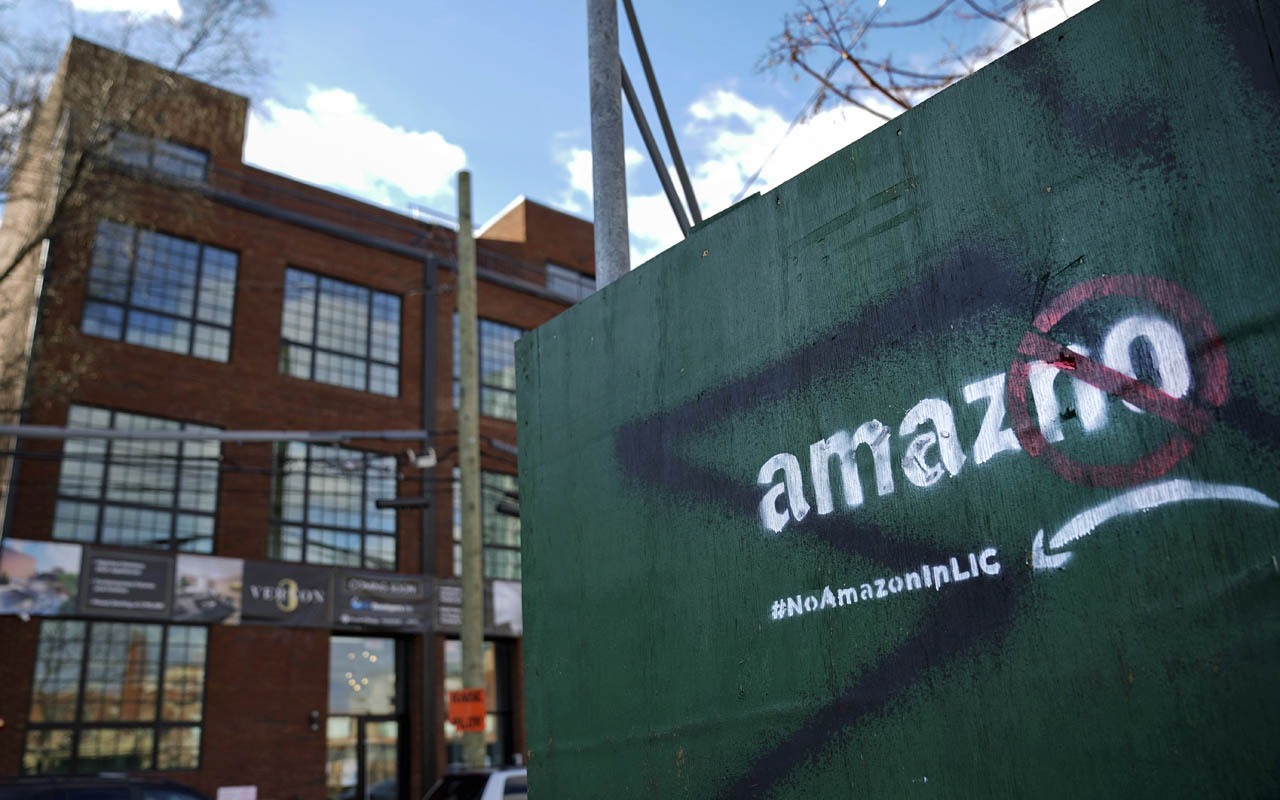
Profit and prosper with the best of Kiplinger's advice on investing, taxes, retirement, personal finance and much more. Delivered daily. Enter your email in the box and click Sign Me Up.
You are now subscribed
Your newsletter sign-up was successful
Want to add more newsletters?

Delivered daily
Kiplinger Today
Profit and prosper with the best of Kiplinger's advice on investing, taxes, retirement, personal finance and much more delivered daily. Smart money moves start here.

Sent five days a week
Kiplinger A Step Ahead
Get practical help to make better financial decisions in your everyday life, from spending to savings on top deals.

Delivered daily
Kiplinger Closing Bell
Get today's biggest financial and investing headlines delivered to your inbox every day the U.S. stock market is open.

Sent twice a week
Kiplinger Adviser Intel
Financial pros across the country share best practices and fresh tactics to preserve and grow your wealth.

Delivered weekly
Kiplinger Tax Tips
Trim your federal and state tax bills with practical tax-planning and tax-cutting strategies.

Sent twice a week
Kiplinger Retirement Tips
Your twice-a-week guide to planning and enjoying a financially secure and richly rewarding retirement

Sent bimonthly.
Kiplinger Adviser Angle
Insights for advisers, wealth managers and other financial professionals.

Sent twice a week
Kiplinger Investing Weekly
Your twice-a-week roundup of promising stocks, funds, companies and industries you should consider, ones you should avoid, and why.

Sent weekly for six weeks
Kiplinger Invest for Retirement
Your step-by-step six-part series on how to invest for retirement, from devising a successful strategy to exactly which investments to choose.
Amazon.com (AMZN) has left a trail of devastated companies in its wake, unable to compete with the e-commerce giant’s lower prices and seemingly infinite selection. In being all things to all people, Amazon is now everywhere, having created its own sort of self-contained ecosystem.
That narrative is convincing. But Amazon.com isn’t steamrolling every company that stands in its path.
It took some time to fully figure out what makes Amazon click for so many consumers. Then it took some effort and money to actually do something about it. But as the dust finally settles on a largely unfettered exposition of its footprint, how and why some organizations still are standing is becoming clearer. Other outfits facing Amazon – not to mention investors – would be wise to note these survivors’ nuances and common threads.
Here’s a rundown of eight stocks that are resisting the Amazon juggernaut. The fact that AMZN hasn’t yet knocked them out suggests they’re here to stay.
Data is as of July 7.
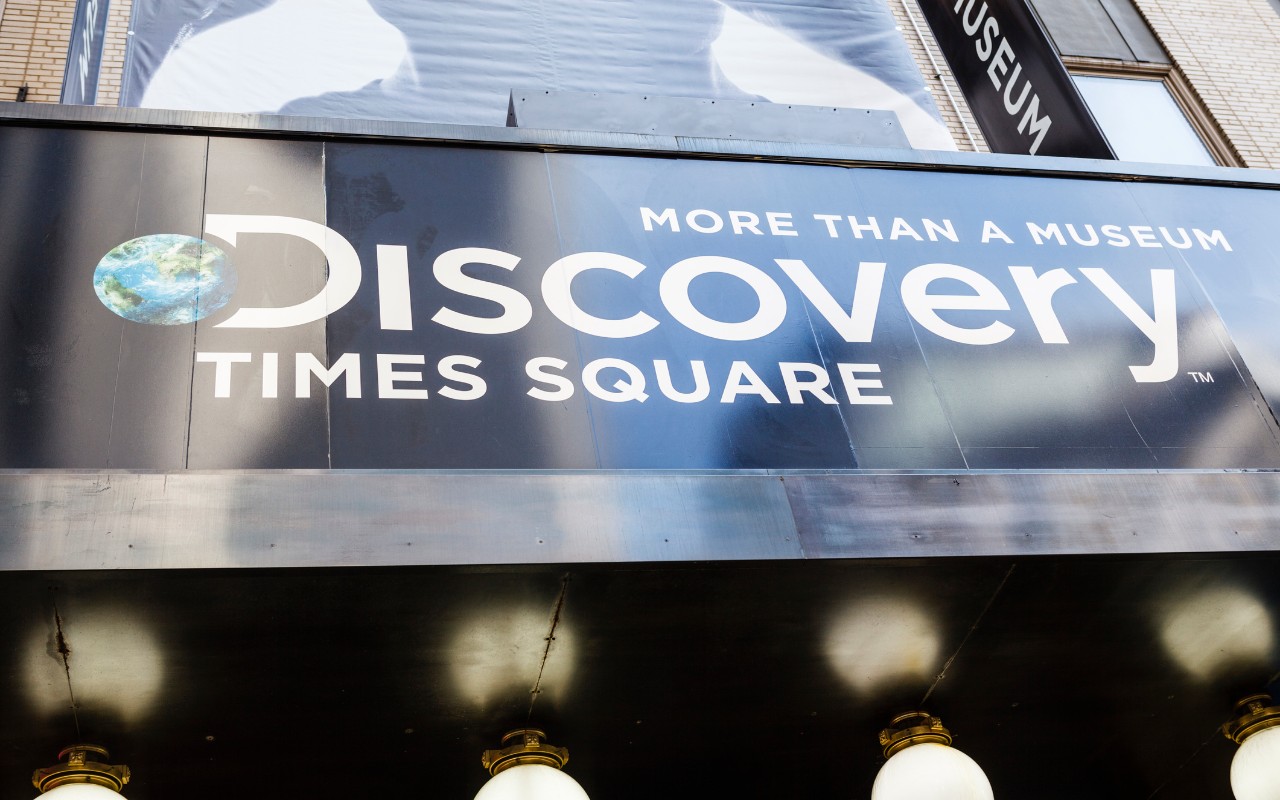
Discovery
- Market value: $16.4 billion
- Dividend yield: N/A
It wouldn’t seem like television production outfit Discovery (DISCA, $31.26) would compete with Amazon.com. But it increasingly does. Smead Capital Management CEO and Chief Investment Officer Bill Smead points out that “Amazon, Netflix (NFLX) and others want video content and are spending money on it like drunken sailors on leave.”
Amazon’s ambitions are, of course, to bolster the amount of on-demand video content accessible to its Prime subscribers, who in turn are more likely make a purchase using Amazon’s e-commerce platform. Also, the bigger Prime becomes, the closer it gets to becoming a standalone profit center.
The challenge for Amazon has been the cost and difficulty of procuring or even making great content. Home-grown programs such as the The Marvelous Mrs. Maisel and Bosch have become not just hits, but draws. However, flops like Betas demonstrate just how difficult it can be to come up with something that resonates with viewers.
That’s where Discovery shines, leveraging years of experience. Says Smead: “Discovery Inc. is the world’s largest unscripted content producer with mega-popular shows like Fixer Upper, Deadliest Catch and 90-Day Fiancée,” keeping viewers from migrating to alternatives offered by Amazon and its peers.
That’s not to suggest Discovery is a potential acquisition target. Indeed, much of Discovery’s content already is accessible with a Prime subscription – a relationship that Amazon pays for when it would likely rather spend that money its own video content. But in a cord-cutting world that should theoretically be crimping Discovery and its collection of cable television offerings, its video content is still well-received by most cable companies even while it expands its streaming footprint. Discovery’s content is even available via most so-called skinny bundles, including YouTube TV.

Dollar General
- Market value: $36.2 billion
- Dividend yield: 0.9%
Amazon has become so dominant largely by leveraging technology to create a hyper-efficient, cost-effective retailing machine. Almost any consumer can get anything they want at any time at Amazon.com, for a great price.
But one slice of the retailing market is ill-suited for the Amazon approach.
“We hold a long position in Dollar General (DG, $139.95) and believe it is one of the few retailers that can withstand the Amazon effect as they are less likely to compete with e-commerce giant for customers,” says Trip Miller, Managing Partner of Memphis-based asset management firm Gullane Capital Partners. “The lower ticket price of the average total transaction limits the ability of online retailers to serve that customer at a profit, in addition to the convenience factor for a customer visiting a store two or more times a week for basic product needs.”
Miller touts the fact that Dollar General stores are often found in small, underserviced markets where Amazon can’t readily serve consumers. He says 70% of their stores are found in markets with a population of less than 20,000 people.
Even if Amazon wasn’t an overwhelming presence on the retail landscape, however, Miller still would be a fan of Dollar General. “We believe that Dollar General is recession-resistant and performs well in all economic climates,” he says.
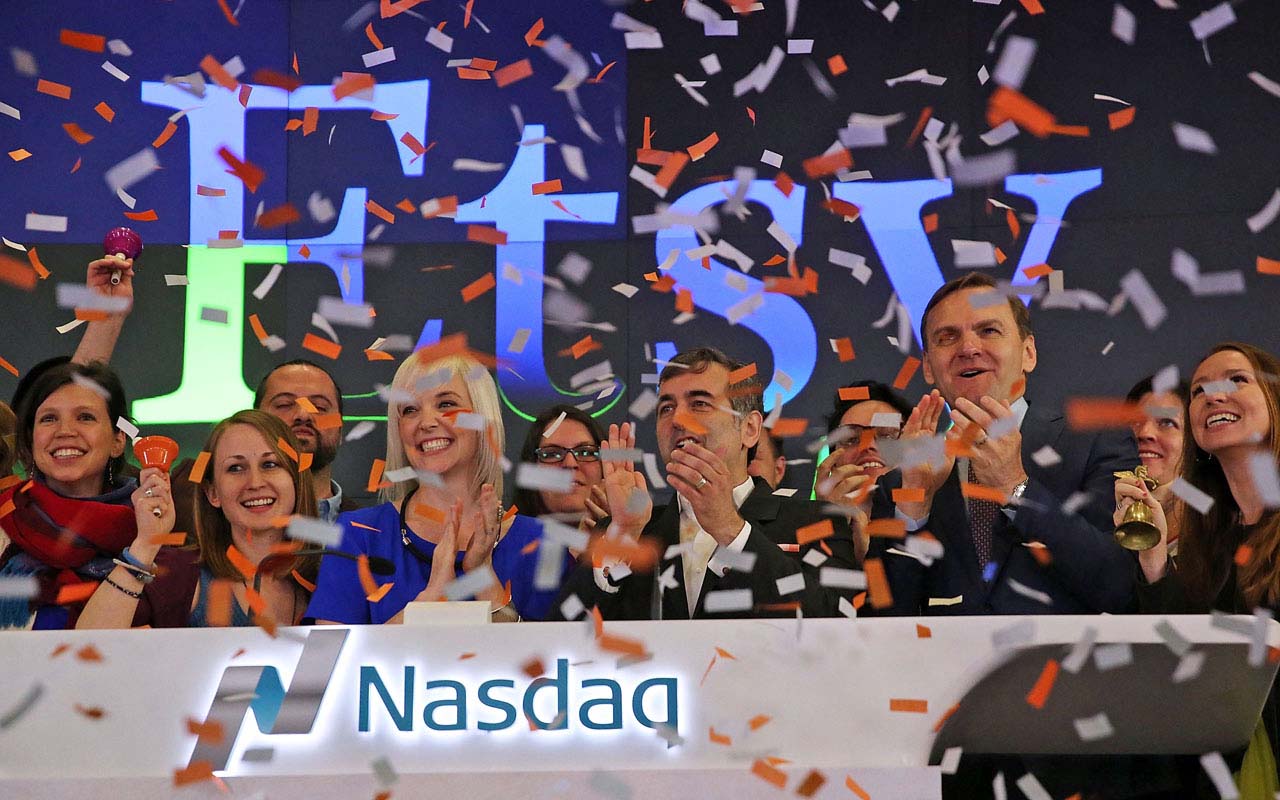
Etsy Inc.
- Market value: $7.6 billion
- Dividend yield: N/A
- Etsy Inc. (ETSY, $63.38) was the original platform that connected consumers with makers of hand-crafted goods – a market that lacked the scalability and speed Amazon needed. In fact, since its inception in 2005, Etsy has become the gold standard in selling handmade, personalized products to online shoppers.
Amazon has tried to dethrone Etsy. Seeing its surprising success, Amazon unveiled Handmade at Amazon in 2015, prompting fresh worries that that the e-commerce giant would claim another batch of small-scale operators.
But that hasn’t happened, for a handful of reasons.
Chief among them is the fact the sheer scope of Handmade at Amazon makes it easy for copycats to identify and reproduce the venue’s best-selling items. Tom Forte, managing director with investment adviser D.A. Davidson, says Amazon’s “own artisanal products effort is flawed with other third-party sellers knocking off the artisans and, therefore, limiting its success.”
Another reason Amazon can’t recreate Etsy’s magic is that its strategy to promote handmade items is largely the same one utilized to sell its other merchandise. As such, it lacks the warmth needed to inspire less utilitarian purchases. Forte goes on to say that Etsy CEO Josh Silverman “has a real understanding of the value and how to properly run a marketplace.”

GrubHub
- Market value: $7.1 billion
- Dividend yield: N/A
- GrubHub (GRUB, $77.86), with a little help from ride-hailing company Uber (UBER), has not only kept yet another Amazon arm in check, but has beaten it into submission.
For now.
In early June, after spending four years trying to make it worthwhile, Amazon quietly revealed it would shut down its restaurant-delivery arm, Amazon Restaurants. That decision followed a similar shuttering last year in the United Kingdom.
Amazon hasn’t necessarily given up on the idea, however. Even as it shuts down some of its delivery operations, it still owns a stake in a U.K.-based restaurant delivery outfit called Deliveroo. It’s possible Amazon has learned that consumers are more responsive to a name and service that aren’t directly connected to Amazon.com. Deliveroo works around that problem, and the whole idea lends credence to the notion that Amazon could be mulling an acquisition of GrubHub.
Whatever the reasoning behind the decision to get out of the business, it adds a layer of credibility to GrubHub’s optimistic projections. Analysts are modeling 36% year-over-year revenue growth this year and 27% in 2020. With the biggest threat now out of the way, these targets are achievable if the company simply continues to do what it’s doing.
Better still, as long as Amazon is out of the picture, GrubHub can continue to developing relationships Amazon won’t be fostering, like the one just forged with Dunkin’ Brands (DNKN).
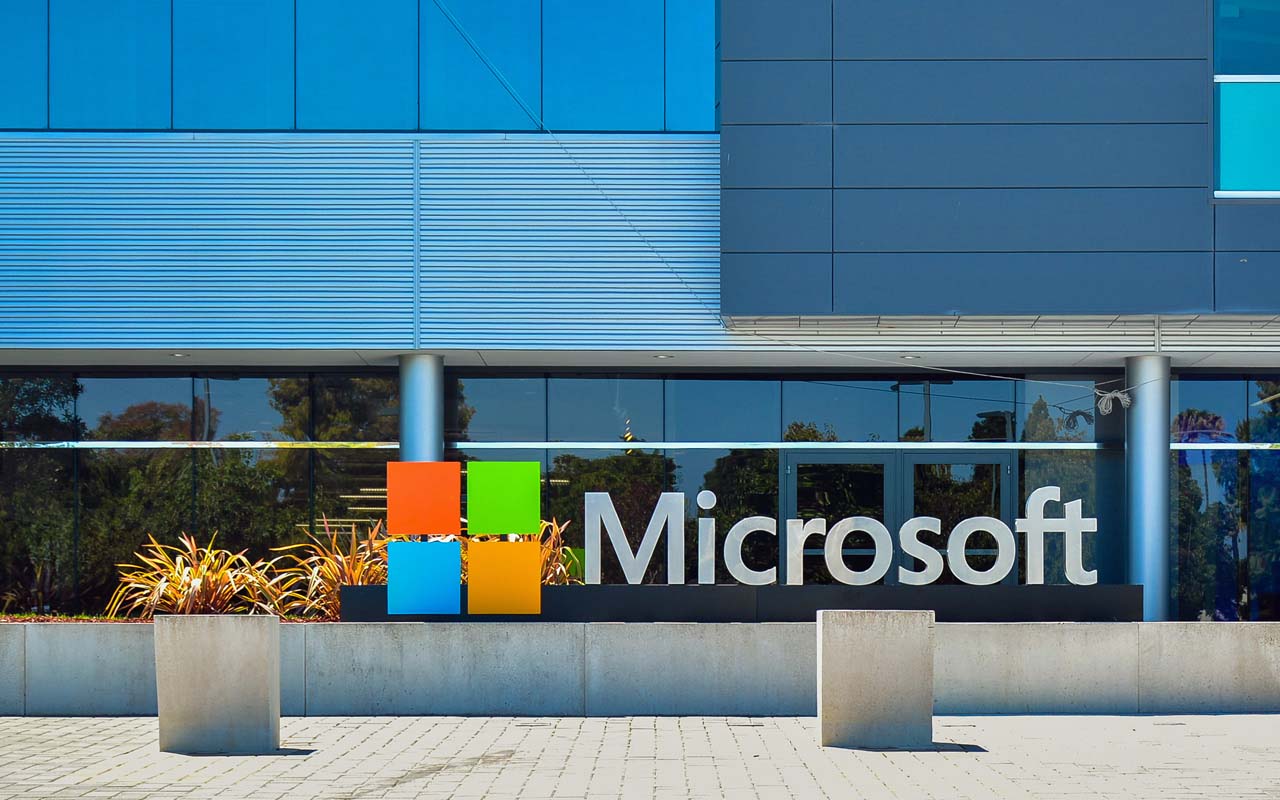
Microsoft
- Market value: $1.1 trillion
- Dividend yield: 1.3%
Software icon Microsoft (MSFT, $137.06) might not be an e-commerce player. But Amazon isn’t just e-commerce, either. In fact, Amazon’s most profitable arm is its Amazon Web Services (AWS), which competes directly with Microsoft’s cloud computing arm, Azure, in what’s turned out to be a quietly brutal war.
Synergy Research says AWS still controls a commanding 33% of the cloud infrastructure services market. Leveraging its powerful Azure platform, Microsoft is the next biggest player but still only boasts 16%.
However, a relative victory is buried in the data. Amazon’s 33% market share of the cloud market as of the first quarter’s end is the same level of market share it had a year earlier. Microsoft, however, only enjoyed 13% during Q1 2018.
Clearly, Microsoft still has work to do if it’s ever going to completely catch up with Amazon on this front. And the industry’s rising tide may be working against the second-place player as much it works for it. But Microsoft’s in-house know-how and experience with business customers sets it up as the most likely spoiler. In the meantime, it has at least effectively run interference with Amazon’s cloud ambitions.
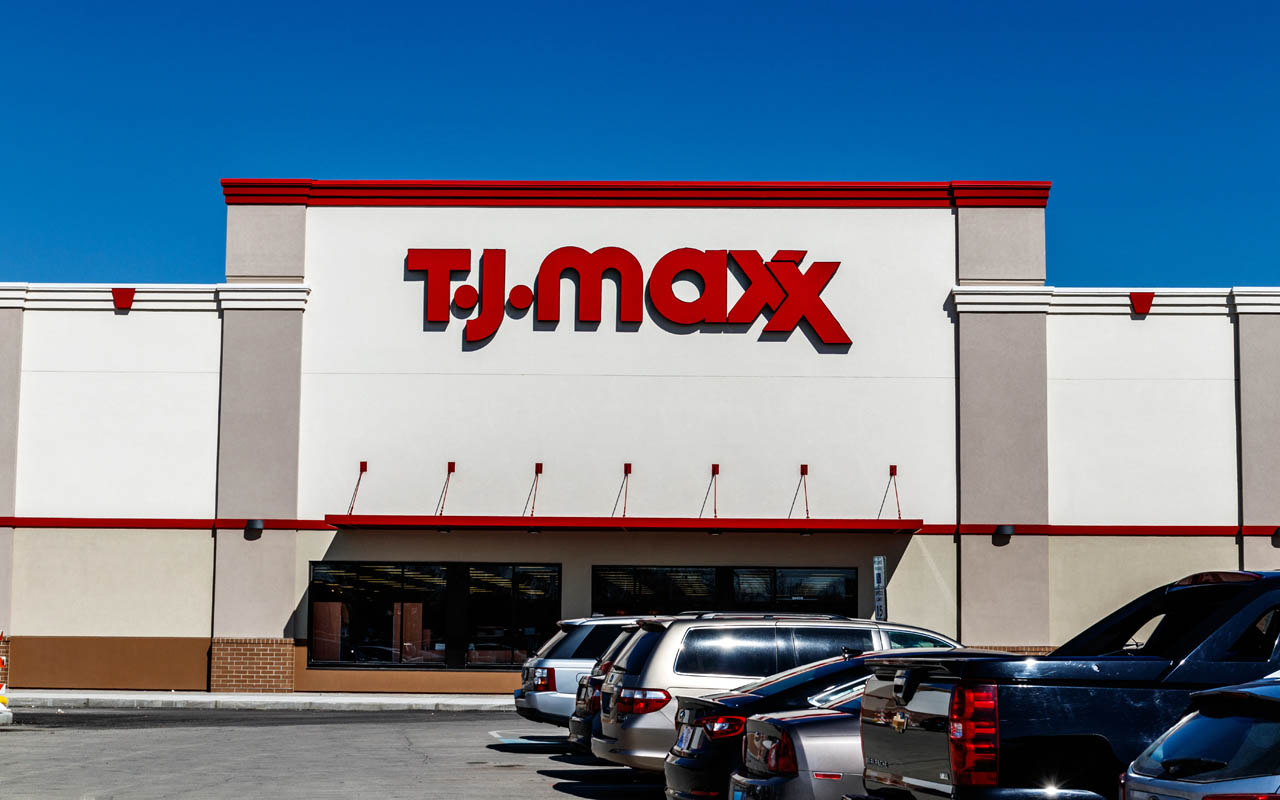
TJX Cos.
- Market value: $66.0 billion
- Dividend yield: 1.7%
Investors will know TJX Cos. (TJX, $54.43) better by its trade names, T.J. Maxx, Marshalls and HomeGoods.
On the surface, it appears to be just another apparel and home décor retail operation – just as vulnerable to Amazon as so many other retailers it’s rolled over. But TJX is different. Its business model is implicitly messy and circumvents the high-precision inventory-keeping that normally plays right into Amazon.com’s technical strengths.
TJX acquires its merchandise primarily from retailers that need to make room for other merchandise, or from vendors that are sitting on overstock, and all the inventory still in stock when a store’s doors close for good. This merchandise initially is sold with a specific SKU breakdown that identifies details like sizes and colors. However, by the time it’s procured by T.J. Maxx or Marshalls, it’s little more than a box with a total piece count inside. The company’s stores often don’t know exactly what they’re getting (not all stores even stocked with the same selections), but that makes the merchandise extremely inexpensive to buy.
The end result is what shoppers have described as a “treasure hunt.” Patrons don’t know what they’ll find when they browse T.J. Maxx or Marshalls’ aisles, but sometimes they run across an item that’s just too good to pass up. These serendipitous experiences have been enough to drive more than a decade’s worth of uninterrupted quarterly revenue growth amid a retailing implosion.
Amazon simply can’t recreate that treasure-hunt experience.
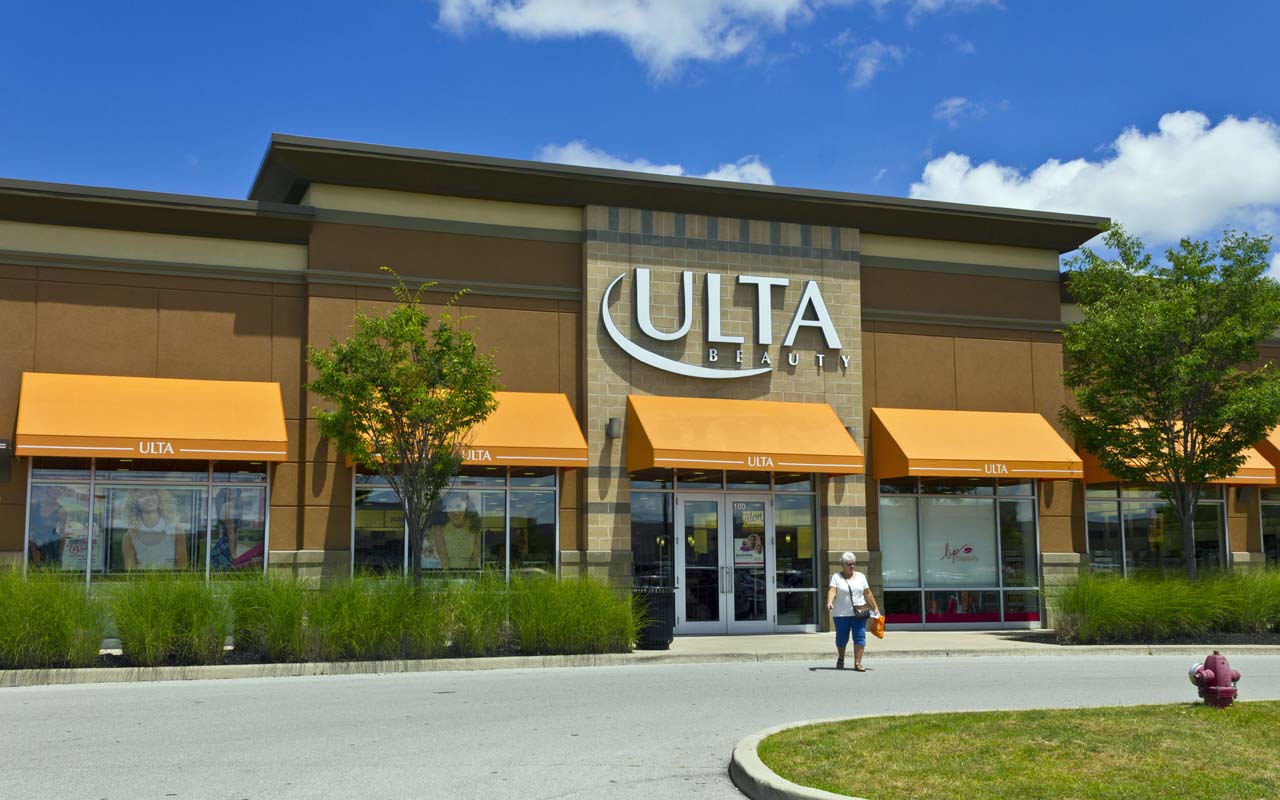
Ulta Beauty
- Market value: $20.2 billion
- Dividend yield: N/A
Amazon sells goods such as cosmetics and beauty supplies. In fact, the company made a deliberate effort to work with cosmetics companies in 2017, even preventing sales by third-party resellers. Finally in league, eMarketer estimated that Amazon’s U.S. sales of beauty products soared to $16 billion last year. The launch of its own Belei brand of beauty products earlier this year will only bolster the company’s presence in this lucrative category.
But it’s an area where even the consumers most likely to shop online still prefer the in-store experience that Ulta Beauty (ULTA, $344.95) shops offer.
Generation Z – currently, people born between the mid-1990s and mid-2000s – have never known a time when the internet didn’t exist. Most of them have only known access to high-speed internet, and mobile phones have always been part of their world. To the best of their memory, smartphones have been around. It’s undoubtedly the most technologically savvy sliver of the population, and they love living their lives online.
But there’s one glaring, blaring exception to that paradigm: Somehow, 90% of Gen Z still prefers to buy cosmetics from brick-and-mortar locales. The number may change slightly for other demographics, but it’s a quirky preference that’s proving rather universal.
Some industry experts believe consumers prefer to see and feel these products in person. Others think there’s a social benefit to the excursions. In any case, Ulta benefits.
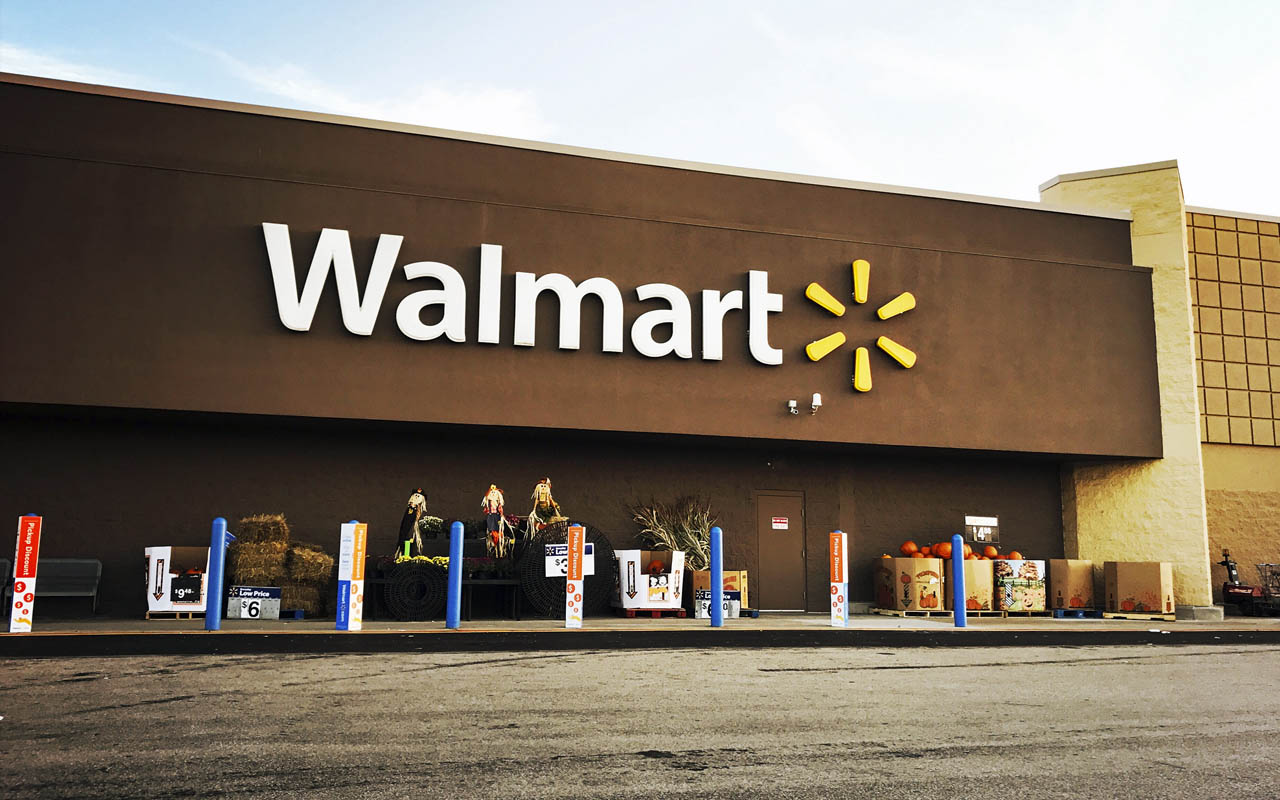
Walmart
- Market value: $319.7 billion
- Dividend yield: 1.9%
Finally, even though Walmart (WMT, $111.98) has been pegged as the company with the most to lose from Amazon’s expansion, it has proven amazingly resilient.
That wasn’t always the case. For far too long after Amazon hit its full stride in the early 2000s, Walmart rested on the laurels of simply being the world’s biggest retailer. It paid the price for doing so – aside from failing to develop a meaningful online presence, the in-store experience slipped, allowing same-store sales declines more often than not between 2010 and 2015.
But Walmart finally showed up to the Internet game, and things have changed dramatically. Last quarter, U.S. same-store sales growth hit a nine-year fiscal-Q1 high of 3.4%, while online sales soared 37% year-over-year.
CEO Doug McMillon has received much of the credit for the turnaround that has started to keep Amazon in check. But D.A. Davidson’s Forte suspects someone else may make the bigger impact going forward. Forte says, “The acqui-hire of Marc Lore from Jet.com – also a former Amazon employee from the Quidsi/Diapers.com acquisition – coupled with a number of creative ideas to more effectively leverage its large physical store base and strong grocery sales have reinvigorated the world’s largest retailer.”
It’s a kind of Walmart that Amazon has never had to contend with in the past.
James Brumley was long DISCA as of this writing.
Profit and prosper with the best of Kiplinger's advice on investing, taxes, retirement, personal finance and much more. Delivered daily. Enter your email in the box and click Sign Me Up.

-
 The New Reality for Entertainment
The New Reality for EntertainmentThe Kiplinger Letter The entertainment industry is shifting as movie and TV companies face fierce competition, fight for attention and cope with artificial intelligence.
-
 Stocks Sink With Alphabet, Bitcoin: Stock Market Today
Stocks Sink With Alphabet, Bitcoin: Stock Market TodayA dismal round of jobs data did little to lift sentiment on Thursday.
-
 Betting on Super Bowl 2026? New IRS Tax Changes Could Cost You
Betting on Super Bowl 2026? New IRS Tax Changes Could Cost YouTaxable Income When Super Bowl LX hype fades, some fans may be surprised to learn that sports betting tax rules have shifted.
-
 Nasdaq Slides 1.4% on Big Tech Questions: Stock Market Today
Nasdaq Slides 1.4% on Big Tech Questions: Stock Market TodayPalantir Technologies proves at least one publicly traded company can spend a lot of money on AI and make a lot of money on AI.
-
 Dow Rises 313 Points to Begin a Big Week: Stock Market Today
Dow Rises 313 Points to Begin a Big Week: Stock Market TodayThe S&P 500 is within 50 points of crossing 7,000 for the first time, and Papa Dow is lurking just below its own new all-time high.
-
 Nasdaq Leads Ahead of Big Tech Earnings: Stock Market Today
Nasdaq Leads Ahead of Big Tech Earnings: Stock Market TodayPresident Donald Trump is making markets move based on personal and political as well as financial and economic priorities.
-
 11 Stock Picks Beyond the Magnificent 7
11 Stock Picks Beyond the Magnificent 7With my Mag-7-Plus strategy, you can own the mega caps individually or in ETFs and add in some smaller tech stocks to benefit from AI and other innovations.
-
 Dow Dives 870 Points on Overseas Affairs: Stock Market Today
Dow Dives 870 Points on Overseas Affairs: Stock Market TodayFiscal policy in the Far East and foreign policy in the near west send markets all over the world into a selling frenzy.
-
 Stocks Struggle for Gains to Start 2026: Stock Market Today
Stocks Struggle for Gains to Start 2026: Stock Market TodayIt's not quite the end of the world as we know it, but Warren Buffett is no longer the CEO of Berkshire Hathaway.
-
 Stocks Extend Losing Streak After Fed Minutes: Stock Market Today
Stocks Extend Losing Streak After Fed Minutes: Stock Market TodayThe Santa Claus Rally is officially at risk after the S&P 500's third straight loss.
-
 Santa Claus Rally at Risk as Tech Stocks Slump: Stock Market Today
Santa Claus Rally at Risk as Tech Stocks Slump: Stock Market TodayThe Nasdaq Composite and Dow Jones Industrial Average led today's declines as investors took profits on high-flying tech stocks.
